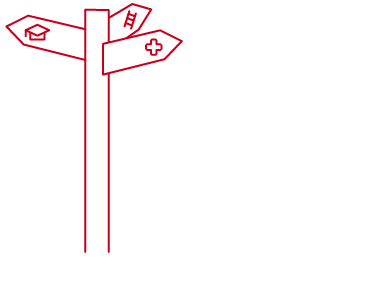I’m starting without healthcare experience
Graduating from high school or already have a degree and want to pursue a new career in nursing?
I have healthcare experience
Do you already have some medical know-how? Start here if you’ve worked in healthcare before.


